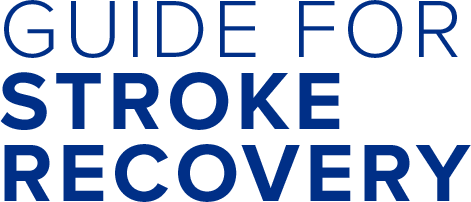A team of health professionals caring for you may include:
Doctors
Doctors supervise the overall medical care of people who have had a stroke. Some types of doctors that may be part of the care team are:
- a family doctor
- a neurologist (doctor who specializes in the nervous system)
- a physiatrist (doctor who specializes in rehabilitation)
- a cardiologist (doctor who specializes in the heart)
- a neuropsychiatrist (doctor who specializes in depression and anxiety)
- a neuropsychologist (doctor who specializes in mental function such as concentration and problem solving)
- A neuro-ophthalmologist (a doctor who specializes in visual problems related to the nervous system)
- An interventional specialist physician such as a neurosurgeon or neuroradiologist (a doctor who specializes on procedures that affect the blood vessels)
Nurses
Nurses work closely with persons with stroke and their caregivers to help manage and provide education about health and personal care needs. There are different kinds of nurses, each with a different role. You may have:
- an advanced practical nurse (APN)
- a registered nurse (RN)
- a registered practical nurse (RPN)
- a nurse practitioner (NP)
Occupational Therapists (OT)
Occupational therapists assess, treat, provide education and teach skills that enable safe and independent living in the home and community (for example, personal care, cooking, and grocery shopping). They help people resume activities such as work, school, driving and child care. They can help with memory, arm movement, and coordination and may suggest equipment to safely do everyday activities.
Occupational Therapy Assistant (OTA)
An occupational therapy assistant works with an occupational therapist to help persons with stroke do activities that support their recovery. They also keep track of how the person is doing and help them reach their goals for daily life.
Personal Care Assistants (PCA)
Personal Care Assistants help persons with stroke to manage their daily personal care such as bathing, dressing and toileting. They may provide care in hospitals or at home. They may also be called Personal Support Workers (PSW).
Pharmacists
Pharmacists prepare and dispense medications. They provide education and counselling about the purpose, side effects, cost, and safety of medications.
Physiotherapists (PT)
Physiotherapists assess mobility and what affects a person’s ability to move. They develop a treatment plan to improve strength, balance, coordination and mobility, and help plan for next steps in stroke recovery. The physiotherapist may suggest specific mobility aids to promote safety and independence.
Physiotherapy Assistant (PTA)
A physiotherapy assistant works under the direction of a physiotherapist to assist with exercises and treatments that can help improve strength, flexibility, and overall movement.
Recreation Therapists
Recreation therapists assess and develop a treatment plan based on a person’s leisure interests. They help people learn the skills and resources needed to take part in hobbies and other interests to help achieve independence.
Registered Dietitians (RD)
Registered dietitians assess and develop a nutrition plan. They help people learn how to prepare food for those who have difficulties swallowing. They also help people learn about healthy eating, managing diabetes, cholesterol, blood pressure and weight loss and malnutrition.
Social Workers (SW)
Social workers offer counselling to help people cope with feelings of anger, sadness, depression, confusion, and anxiety. Social workers can help with applications for financial assistance, housing options planning for the future and coordinating community support services.
Speech-Language Pathologists (S-LP)
Speech-language pathologists assess and provide ways to help people who have trouble swallowing and can recommend modified diets if needed. They also assess and treat people who have trouble speaking, understanding, reading and/or writing. They can help by providing activities to improve speech and teach other ways to communicate.
Communication Disorder Assistant
Communicative Disorders Assistants carry out individualized treatment plans for communication and swallowing, and screen hearing. They maintain hearing aids through goals provided by the Speech-Language Pathologist or Audiologist. They work together with the Speech-Language Pathologist or Audiologist to make sure every patient’s communication needs are met.
Other Professionals
Other professionals may also be part of the care team:
- An orthotist makes special braces to support weak joints and muscles.
- A urologist helps with bladder problems.
- Vocational counselors help people to go back to work or school.
You, your family and/or caregivers, and community service providers are also important members of this team and of your circle of care.
To learn more about what some of these professionals do, click here.
